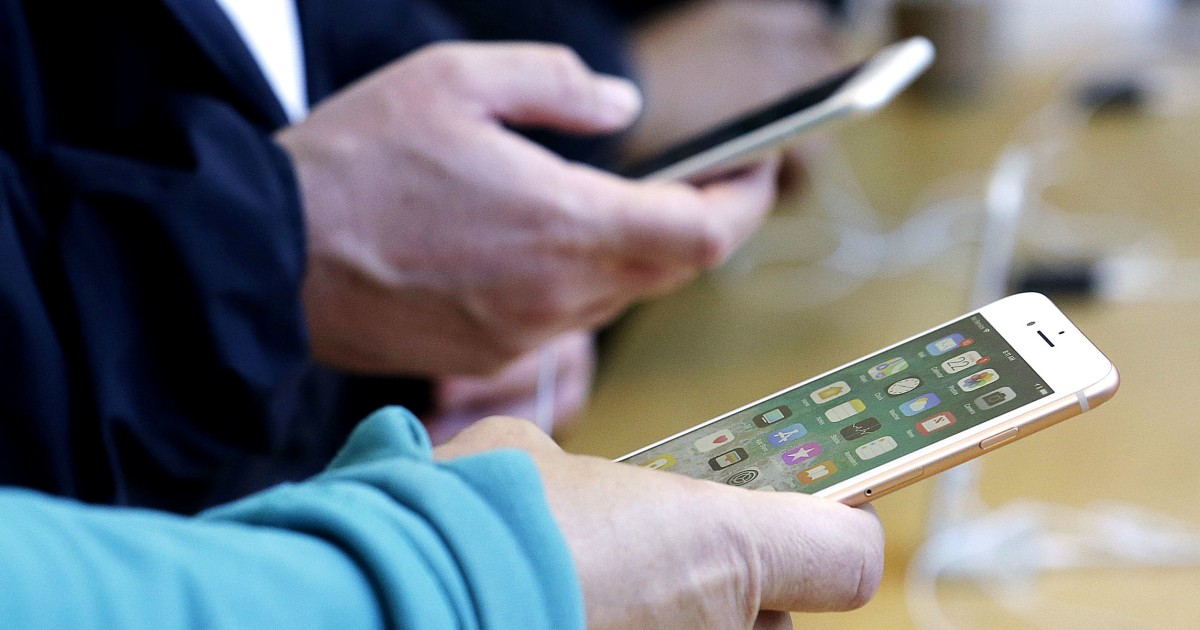
Governments and private companies are ramping up efforts to create “vaccine passports” that could potentially give a big boost to reopening air travel and businesses around the world.
But critics are concerned that vaccine passports will lead to privacy violations and discrimination. For example, Florida Gov. Ron DeSantis, a Republican, is dismissive of the idea and has said he will take action against it.
A vaccine passport would be a smartphone app that would confirm if someone had received a COVID-19 vaccine or had tested negative for the coronavirus. Many businesses, such as airlines, bars, and sport and music venues, are considering requiring them for entry.
The nation of Israel already issues a “green passport” to citizens who have been fully vaccinated. It grants them access to venues such as restaurants and theaters. The European Union is considering something similar, called a Digital Green Certificate.
Officials in the Biden administration began discussing a vaccine passport back in early March. White House press secretary Jen Psaki said on Monday the administration expects the private sector to drive “a determination or development of a vaccine passport, or whatever you want to call it.” She also said the passports should be private and secure.
On Monday, the state of New York introduced the Excelsior Pass, an app that New York residents can download to their smartphones that they can use to confirm COVID-19 vaccination. A joint project of the New York state government and IBM, Gov. Andrew Cuomo said it would be crucial to “getting information to venues and sites in a secure and streamlined way, allowing us to fast-track the reopening” of New York.
BIDEN ADMINISTRATION AIMS TO HAVE VACCINE ACCESSIBLE TO 90% OF ADULTS BY MID-APRIL
Critics have noted that since most vaccine passports will come in the form of smartphone apps, people’s private health information will be at risk of exposure. The reason is that the smartphone apps will have to link to databases that contain the relevant vaccine or testing information.
“These systems need some degree of access to sensitive health information in order to function, and that creates an unavoidable vulnerability,” J.D. Tuccille of Reason magazine noted.
New York’s Excelsior Pass has come under heavy criticism for not being specific about how it protects data.
“I have more detailed technical documentation about the privacy impact of nearly every app on my phone than I do for this health pass,” Albert Fox Cahn, an attorney and founder of the privacy rights group Surveillance Technology Oversight Project, recently told the website the Gothamist. “IBM and the governor are … not explaining the security, implementation. And on top of it, the pass itself is incredibly revealing, disclosing not only people’s health status and name but their date of birth.”
He also noted that the terms of service documents for the Excelsior Pass did not expressly say that the information wouldn’t be accessible to police departments or other government agencies.
Other critics contend that vaccine passports will be discriminatory.
Many people around the world do not have access to smartphones, including an estimated 1 in 5 people in the United States. Supporters say that those without smartphones will be able to print out their passports.
Liberty, the United Kingdom’s largest civil liberties organization, worries that it would lead to a system that discriminates against those who are not vaccinated.
“Even the introduction of a voluntary passport to prove if you’ve had a vaccine could result in many being blocked from essential public services, work or housing,” the organization said in a statement recently. “Meanwhile once these passports have been created for one purpose – like travel – it would be all too easy for their use to be extended and abused. This would result in a two-tier system in which some people can access freedoms and support while others are shut out – with the most marginalised among us hardest hit.”
In the U.S., vaccine passports could exacerbate “health inequity,” the concern expressed by civil rights groups that systemic racism gives minorities less access to the healthcare system. Thus far, minorities are getting vaccinated at lower rates than whites. Vaccine passports raise the specter that whites would have greater access to public venues than minorities, at least temporarily.
Those who do not wish to be immunized or are unable to get a vaccine for medical reasons could be left out as well.
Concerns over freedom and privacy have led DeSantis to oppose vaccine passports.
“We’re not supportive of that. I think it’s something that people have certain freedoms and individual liberties to make decisions for themselves,” DeSantis, a Republican, said at a press conference on Monday. “It’s completely unacceptable for either the government or the private sector to impose upon you the requirement that you show proof of vaccine to just simply be able to participate in normal society.”
He also equated letting big businesses have access to a person’s health data to the fox guarding the henhouse.
DeSantis said he would be taking executive action against such passports and he would be urging the state Legislature to follow with legislative action.
CLICK HERE TO READ MORE AT THE WASHINGTON EXAMINER
Nevertheless, some businesses are forging ahead. Madison Square Garden and the Times Union Center will begin using the Excelsior Pass in the next few weeks. The International Air Transport Association has developed a vaccine passport called IATA Travel Pass to verify COVID-19 vaccinations or tests. Thus far, 17 airlines have signed up to test the app.
